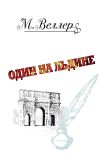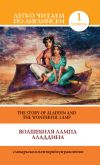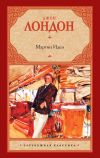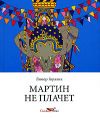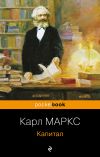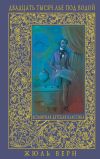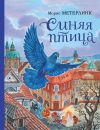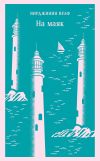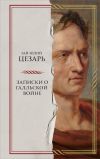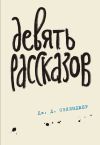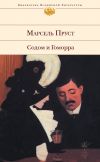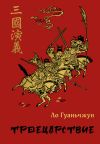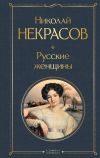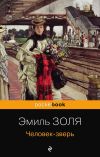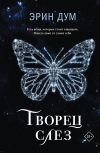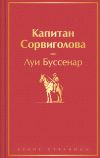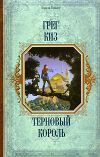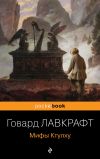Текст книги "Мартин Иден / Martin Eden"

Автор книги: Джек Лондон
Жанр: Иностранные языки, Наука и Образование
Возрастные ограничения: +16
сообщить о неприемлемом содержимом
Текущая страница: 6 (всего у книги 9 страниц)
Chapter 36
“I’m very sick,” said Brissenden. “You have health. As for me, you wonder why I am a socialist. I’ll tell you. It is because Socialism is inevitable; because the present rotten and irrational system cannot endure. The past is past, and the man who says history repeats itself is a liar. Of course I don’t like the crowd, but what to do?”
It was Sunday night, and they visited the small hall packed by the Oakland socialists, chiefly members of the working class. The speaker won Martin’s admiration. To Martin he was a symbol. They were the unfit.
So Martin thought, and so he spoke when Brissenden urged him to do that.
“No state composed of the slave,” he was speaking, “can endure. You slaves – it is too bad to be slaves, I grant – but you slaves dream of a society where the law of development will be annulled. What will be the result? It will diminish. Your society of slaves – of, by, and for, slaves – must inevitably weaken and go to pieces.”
“How about the United States?” a man yelled from the audience.
“And how about it?” Martin retorted. “The thirteen colonies threw off their rulers and formed the Republic so-called.[161]161
the Republic so-called – так называемая республика
[Закрыть] The slaves were their own masters, without a revolution. And there arose new masters – not the great, virile, noble men, but the shrewd and spidery traders and money-lenders. And they enslaved you over again. They have purchased your slave judges, they have debauched your slave legislatures.”
There was a reporter sat in the audience. He did not know what all the talk was about. It was not necessary. Words like REVOLUTION gave him his cue. Like a paleontologist, able to reconstruct an entire skeleton from one fossil bone, he was able to reconstruct a whole speech from the one word REVOLUTION. He did it that night, and he did it well.
Chapter 37
Over the coffee,[162]162
over the coffee – за утренним кофе
[Закрыть] in his little room, Martin read next morning’s paper. It was a novel experience to find himself on the first page at that; and he was surprised to learn that he was the most notorious leader of the Oakland socialists. He read the violent speech that the reporter had constructed for him.
“But what do you care?[163]163
But what do you care? – А вам не всё равно?
[Закрыть]“ Brissenden asked. “Surely you don’t desire the approval of the bourgeois swine that read the newspapers?”
Martin thought for a while, then said:
“No, I really don’t care for their approval. I want to read you what I’ve done today. It’s ‘Overdue[164]164
‘Overdue’ – «Запоздалый» (название рассказа)
[Закрыть]’, of course.”
He was reading aloud when Maria opened the door and a young man came in.
“Sit down,” Brissenden said.
“I heard your speech last night, Mr. Eden, and I’ve come to interview you,” he began.
Brissenden laughed.
“A brother socialist?” the reporter asked, with a quick glance at Brissenden.
“And he wrote that report,” Martin said softly. “Why, he is only a boy!”
“Why don’t you poke him?” Brissenden asked meditatively. “Poke him,[165]165
Poke him! – Вздуйте его!
[Закрыть] Martin! Poke him!”
“It wasn’t true, not a word of what he wrote,” said Martin.
“It’s good advertising, Martin, old boy,” Brissenden repeated solemnly.
“Let me see – where were you born, Mr. Eden?” the reporter asked.
“He doesn’t take notes,” said Brissenden. “He remembers it all. Martin, if you don’t poke him, I’ll do it myself!”
The next instant Martin was seated on the edge of the bed with the reporter’s face across his knees.
“Now don’t bite,” Martin warned, “or else I’ll have to punch your face. It would be a pity, for it is such a pretty face.”
His uplifted hand descended, and thereafter rose and fell in a swift and steady rhythm. The reporter struggled and cursed and squirmed, but did not offer to bite.
“I’ll tell the police! They will arrested you for this!” he cried. “You’ll see!”
In the next morning’s paper Martin learned a great deal more about himself[166]166
learned a great deal more about himself – узнал о себе много нового
[Закрыть] that was new to him. “We are the enemies of society. No, we are not anarchists but socialists.” When the reporter told him that there was little difference between the two schools, Martin had shrugged his shoulders in silent affirmation. His face was described as asymmetrical, and various other signs of degeneration were described.
He learned, also, that he spoke to the workers in the City Hall Park, and that among the anarchists and agitators he drew the largest audiences and made the most revolutionary speeches. The reporter was industrious and wrote even about Martin’s family. He wrote that Martin’s relatives did not like his views and said that Martin would go to jail very soon.
This time Martin was really angry. He knew that it would be difficult to explain everything to Ruth. The afternoon mail brought a letter from Ruth. Martin opened it, and read it standing at the door when he had received it from the postman.
It was not an angry letter. But from the first sentence to the last it carried disappointment. Ruth had expected better of him. She thought that he would live seriously and decently. And now her father and mother commanded that the engagement be broken.[167]167
that the engagement be broken – чтобы помолвка была расторгнута
[Закрыть] “Your past life had been too wild and irregular,” she wrote. I can understand that I do not blame you, Martin. Please remember that. It was simply a mistake. As father and mother have contended, we were not made for each other. Please do not try to see me.”
Martin read it through to the end, carefully, a second time, then sat down and replied. He wrote that the newspaper was lying. “Please answer,” he said, “Do you love me? That is all – the answer to that one question.”
But no answer came the next day, nor the next. Three times he came to the Morse home, but was turned away by the servant who answered the bell. Brissenden lay sick in his hotel, and, though Martin was with him often, he did not worry him with his troubles.
For Martin’s troubles were many. The aftermath of the reporter’s deed was even wider than Martin had thought. The Portuguese grocer refused him further credit, while the greengrocer, who was an American and proud of it, had called him a traitor to his country. He cancelled Martin’s account and did not want to see him at all.[168]168
at all – совсем, вовсе
[Закрыть] The neighbors didn’t want to talk to a socialist traitor. Once, Martin met Gertrude on the street.
“Why don’t you go away, Martin?” Gertrude had begged. “Go away and get a job somewhere. Afterwards, you can come back.”
Martin shook his head, but gave no explanations. How could he explain? There were not words enough in the English language, nor in any language, to make his attitude and conduct intelligible to them. They could just offer him: get a job. That was their first word and their last. Get a job! Go to work! Poor, stupid slaves, he thought, while his sister talked. Yes, the world belonged to the strong. The slaves were obsessed by their own slavery.
He shook his head again, when Gertrude offered him money, though he knew that within the day he would go to the pawnbroker.
“Don’t come near Bernard now,” she admonished him. “But any time you want to see me, just send for me and I’ll come. Don’t forget.”
Chapter 38
Martin’s and black suit were again in pawn. But such things no longer bothered him. He was seeking a new orientation.
After several weeks, he met Ruth on the street. She was accompanied by her brother, Norman, and they tried to ignore him.
“If you interfere with my sister, I’ll call an officer,” Norman threatened. “She does not wish to speak with you, and your insistence is insult.”
“If you persist, you’ll have to call that officer, and then you’ll get your name in the newspapers,” Martin answered grimly. “And now, get the officer if you want to. I’m going to talk with Ruth.”
“I want to have it from your own lips,” he said to her.
She was pale and trembling.
“The question I asked in my letter,” he prompted.
She shook her head.
“Is all this of your own free will?[169]169
Is all this of your own free will – Вы действовали по доброй воле?
[Закрыть]” he demanded.
“It is.” She spoke in a low, firm voice and with deliberation. “It is of my own free will. You have disgraced me so that I am ashamed to meet my friends. They are all talking about me, I know. That is all I can tell you. You have made me very unhappy, and I never wish to see you again.”
“Friends! Gossip! Newspaper misreports! Surely such things are not stronger than love! I can only believe that you never loved me.”
“After what has passed?” she said faintly. “Martin, you do not know what you are saying.”
“You see, she doesn’t want to have anything to do with you,[170]170
to have anything to do with you – иметь с вами каких-либо дел
[Закрыть]” said Norman.
For five days Martin was going nowhere, seeing nobody, and eating very little. On the morning of the sixth day the postman brought him a thin letter from the editor of THE PARTHENON.[171]171
THE PARTHENON – «Парфенон» (название журнала)
[Закрыть] The editor told him that “Ephemera” was accepted.
The honorarium they had offered was three hundred and fifty dollars. Well, he had been right, after all. Here was one magazine editor who knew real poetry when he saw it. And the price was splendid, even though it was for the poem of a century.
Martin was anxious to see Brissenden. At the hotel he hurried up to Brissenden’s room, and hurried down again. The room was empty. All luggage was gone.
“Did Mr. Brissenden leave any address?” he asked the clerk, who looked at him curiously for a moment.
“Haven’t you heard?” he asked.
Martin shook his head.
“Why, the papers were full of it. He was found dead in bed. Suicide. Shot himself through the head.”
“When?”
“It happened five days ago.”
“Five days ago?”
“Yes, five days ago.”
Martin came home. Then he sent a telegram to THE PARTHENON, advising them to proceed with the publication of the poem.
Once in his room, he continued to write. The days and nights came and went, and he sat at his table and wrote on. He went nowhere, took no exercise, and ate methodically when he was hungry and had something to cook.
Finally, his “Overdue” was finished. He was faint from hunger. Food had not passed his lips in thirty-six hours, but he did not think about it. He lay on his back, with closed eyes, and did not think at all. Half in delirium, he began to mutter aloud the lines of an anonymous poem that Brissenden was quoting to him.
In the morning he sat on the edge of the bed, and then saw THE PARTHENON, the August PARTHENON, which contained “Ephemera.” He closed his eyes with a groan, and slept.
Chapter 39
He slept heavily all night, and was aroused by the postman on his morning round. Martin felt tired and passive, and went through his letters aimlessly. One thin envelope, from a magazine, contained for twenty-two dollars. He noted its amount apathetically. The thrill at receiving a publisher’s check was gone. To him it was a check for twenty-two dollars, that was all. It can buy him something to eat.
Another check was in the same mail, sent from a New York weekly in payment for some humorous verse which were accepted some months before. It was for ten dollars. An idea came to him, which he calmly considered. He went into the Forum Cafe[172]172
Forum Cafe – кафе «Форум»
[Закрыть] and ordered a breakfast that cost two dollars. What did the money matter?
The days slipped along, and he slept eight hours regularly every night. He ate in the restaurants. He no longer abused himself[173]173
he no longer abused himself – он больше не изнурял себя
[Закрыть] with short sleep, overwork, and overstudy. He wrote nothing, and the books were closed. He walked much, out in the hills, and loafed long hours in the quiet parks. He had no friends nor acquaintances. He was waiting for some impulse, in the meantime his life remained planless, and empty and idle.
Sometimes he read the magazines and newspapers to know something about “Ephemera”. It had made a hit.[174]174
It had made a hit. – Она наделала шуму.
[Закрыть] But what a hit! Everybody had read it, and everybody was discussing whether or not it was really poetry. There were even parodies.
Martin was glad that Brissenden was dead. He had hated the crowd so, and here all that was finest and most sacred of him was thrown to the crowd. One paper wrote, “We have received a letter from a gentleman who wrote a poem just like it, only better, some time ago.” Another paper, in deadly seriousness, said that ten lines of “Ephemera” could send people to the bottom of the river.
Martin did not laugh; nor did he grit his teeth in anger. Brissenden was right in his judgment of the magazines. At the very moment when Martin had abandoned the fight, the tide turned.[175]175
the tide turned – удача повернулась к нему лицом
[Закрыть] But it had turned too late. Without a thrill he opened a thick envelope from THE MILLENNIUM with a check that represented three hundred dollars. He had paid everything, and ordered a suit of clothes from the tailor and ate his meals in the best cafes in town.
“Wiki-Wiki”, his Hawaiian short story, was bought by WARREN’S MONTHLY[176]176
WARREN’S MONTHLY – «Ежемесячниу Уоррена» (название журнала)
[Закрыть] for two hundred and fifty dollars. THE NORTHERN REVIEW[177]177
THE NORTHERN REVIEW – «Северное обозрение» (название журнала)
[Закрыть] took his essay, “The Cradle of Beauty,” and MACKINTOSH’S MAGAZINE[178]178
MACKINTOSH’S MAGAZINE – «Журнал Макинтоша» (название журнала)
[Закрыть] took “The Palmist”.
He actually opened a bank account, where he had several hundred dollars to his credit. “Overdue” was accepted by the Meredith-Lowell Company.[179]179
Meredith-Lowell Company – издательство «Мередит-Лоуэлл»
[Закрыть] They sent him five hundred dollars. He cashed the check into five-dollar gold pieces and telephoned Gertrude that he wanted to see her.
She arrived very fast.
“Are you going to get a job, Martin?” she asked him.
“No, I’m not going to get a job,” Martin said with a smile. “I don’t need a job, and there’s the proof of it.”
He emptied the hundred gold pieces into her lap.
“You remember that coin that you gave me? Well, there it is, with ninety-nine brothers of different ages but all of the same size.”
Gertrude was in a panic of fear. She looked at Martin in horror.
“It’s yours,” he laughed.
“I’ll put it in the bank for you,” she said finally.
“No, it’s yours. Hire a servant and take a good long rest.”
“I’m going to tell Bernard all about it,” she announced, when she was leaving.
“Yes, do,” he said. “And then, maybe, he’ll invite me to dinner again.”
“Yes, he will – I’m sure he will!” she exclaimed fervently, and kissed and hugged him.
Chapter 40
One day Martin became aware that he was lonely. He was healthy and strong, and had nothing to do. The death of Brissenden, and the estrangement from Ruth had made a big hole in his life. The South Seas were calling to him. He knew a valley and a bay in the Marquesas[180]180
the Marquesas – Маркизские острова
[Закрыть] that he could buy for a thousand Chili dollars. It was filled with tropical fruits, wild chickens,[181]181
wild chickens – куропатки
[Закрыть] and wild pigs.[182]182
wild pigs – кабаны
[Закрыть] The whole place was wild. Not a human lived in it. And he could buy it and the bay for a thousand Chili dollars.
He will buy a schooner and begin to sell pearls. He would make the valley and the bay his headquarters. He will live like a prince. And he will forget the books that he opened and the world that became an illusion.
To do all this he must wait in California to fill the sack with money. He will never write again.
One Sunday morning he went to Shell Mound Park.[183]183
Shell Mound Park – Шелл-Моунд-парк
[Закрыть] There were a lot of working people in the park. He was born among them, he lived among them, and it was well to come back among them.
“Mart!” he heard, and the next moment a hearty hand was on his shoulder. “Where have you been all the time? Come on and have a drink.”
It was the old crowd. Martin drank with them, and began to feel really human once more. He was a fool that he left them, he thought. But the beer seemed not so good as before. Brissenden and the books had spoiled him. Oh, these friends of his youth! He went on to the dancing pavilion.
Everybody was glad to see Martin. They did not read his books. They liked him for himself. He felt like a prince returned from exile. Also, he had money in his pockets.
Once he saw Lizzie Connolly with a young worker. From the instant he spoke to her, she was his. He knew it. She showed it in the proud humility of her eyes, in every movement of her body. She was not the young girl as he had known her. She was a woman, now, and Martin noted that her wild, defiant beauty had improved. “A beauty, a perfect beauty,” he murmured admiringly. And he knew she was his.
Suddenly he received a heavy blow on the side of his head. At once, Martin turned and hooked with his left. The man went to the ground, leaped to his feet, and made a mad rush. Martin hit again. The man fell in a crumpled heap. Other people were running toward them.
“She was waiting for me!” he was crying. “She was waiting for me to come back, and then that guy comes! Let me go![184]184
Let me go! – Отпустите меня!
[Закрыть]“
“That guy is Mart Eden. I’ll tell you, come on, now, let’s go away. There are many other girls. Come on.”
The gang went away.
“Who is he?” Martin asked Lizzie.
“Oh, he’s nobody,” she said. “Just a friend of mine.”
“He’s a strong young fellow, though,” he admitted generously.
“Who was that lady I had seen you with that night?” she asked abruptly.
“Oh, just a lady, a friend,” was his answer.
“It was a long time ago,” she murmured contemplatively. “It seems like a thousand years.”
They went to the restaurant, where he ordered wine and expensive delicacies and afterward he danced with her and with no one but her, till she was tired. Later in the afternoon they walked among the trees, where she sat down while he put his head in her lap.
“I was waiting for you,” she said, her voice so low that it was almost a whisper. “I’m proud to be your friend. I’d do anything for you.”
In his heart Martin knew that it was the miraculous truth. But he was changed – how changed he had not realized until now.
Martin sat up. He took her hand in his. He did it deliberately, with warmth but without passion; and such warmth chilled her.
“You are a great and noble woman,” he said. “And it is I who should be proud to know you. And I am, I am.”
“You can do anything with me. You could throw me in the dirt and walk on me. And you’re the only man in the world that can,” she added with a defiant flash.
“You are so big and generous,” he said gently. “But look here, Lizzie. I can’t begin to tell you how much I like you. I do more than like you. I admire and respect you. You are magnificent, and you are magnificently good. But what’s the use of words? Yet there’s something I’d like to do. You’ve had a hard life; let me make it easy for you. I’ll get much money soon. I’d like to give it to you. You could go to school or business college. You could study and be a stenographer. I could fix it for you. Or maybe your father and mother are living – I could buy them a grocery store or something. Anything you want, just tell me.”
She made no reply, but sat, gazing straight before her. Martin regretted that he had spoken.
“Don’t talk about it,” she said. She stood up. “Come on, let’s go home. I’m tired.”
She leaned toward him as he was about to say good night. He put his arms around her, and kissed her.
“My God!” she sobbed. “I could die for you. I could die for you.”
Chapter 41
“The Shame of the Sun” was published in October. His book, his first book, – but it meant little to him now. It meant that it might bring some money, but he did not care for money.
He presented his book to Maria.
“I did it,” he explained. “I wrote it in the room there. Keep it. It’s yours. Just to remember me, you know.”
Maria put the book in the front room on top of the family Bible. This book was a sacred thing for her.
The book was making a hit, that was evident. It meant more gold in the money sack.
The publishing house published fifteen hundred copies, but soon the second edition appeared of three hundred copies; and the third edition of five thousand was ordered. French, German, and Scandinavian translations were in progress.
“I want you to come down town with me, Maria, this afternoon about two o’clock,” Martin said.
At the appointed time she was there. Martin brought her into a real estate office.[185]185
real estate office – контора по сделкам с недвижимостью
[Закрыть] What happened thereupon resided forever after in her memory as a dream. Her landlord spoke to her, “Well, Maria, you won’t have to pay me no seven dollars and a half this month.”
Maria was too stunned for speech.
“Or next month, or the next, or the next,” her landlord said.
She thanked him, and when she returned home, she really knew that she was the owner of the little house in which she had lived and for which she had paid rent so long.
“Maria,” Martin announced that night, “I’m going to leave you. And you’re going to leave here yourself soon. Then you can rent the house and be a landlord yourself. You have a brother in San Leandro,[186]186
San Leandro – Сан-Леандро
[Закрыть] and he’s in the milk business. Go out to San Leandro tomorrow, and see that brother of yours. I want to buy you a good milk-ranch.”
And Maria became a landlord and the owner of a dairy, with two hired men to do the work for her and a bank account that steadily increased.
In the meantime the world had begun to ask: “Who is this Martin Eden?” He refused to talk to the reporters. At first, his disgust with the magazines and all bourgeois society was great, and Martin fought against publicity; but in the end he surrendered…
He saw Lizzie occasionally. The space between them widened.
“Overdue” made even a bigger strike than “The Shame of the Sun.”
Martin became rich. Judge Blount humself invited him to dinner. He had insulted Judge Blount, and Judge Blount, meeting him on the street, invited him to dinner! Why had he not invited him to dinner then? Martin asked himself. He had not changed. He was the same Martin Eden. What made the difference? Martin grinned and accepted the invitation.
Editors wrote to him and offered to publish his works, but it was performed work. He refused to write any new thing. His popularity seemed a disgrace and a treason to Brissenden. He received letters from editors like the following: “About a year ago we were unfortunate enough to refuse your collection of love-poems. If you still have them, we shall be glad to publish the entire collection.”
“Wiki-Wiki,” published in WARREN’S MONTHLY, was a great success.
The “Smoke of Joy” was translated into French. The American and English reading public became mad reading it.
Martin questioned the validity of his popularity. It was the bourgeoisie that bought his books and poured its gold into his money-sack. He sighed heavily and with satisfaction. He was glad the last manuscript was sold.
Правообладателям!
Это произведение, предположительно, находится в статусе 'public domain'. Если это не так и размещение материала нарушает чьи-либо права, то сообщите нам об этом.
